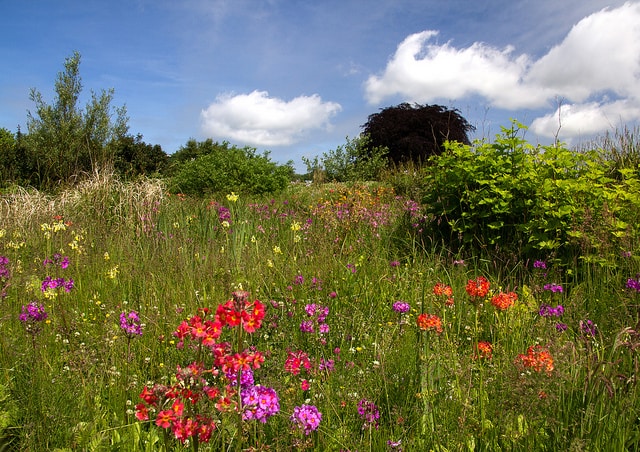Author
https://www.conserve-energy-future.com/what-is-biodiversity.php
Rinkesh
Rinkesh is passionate about clean and green energy. He is running this site since 2009 and writes on various environmental and renewable energy related topics. He lives a green lifestyle and is often looking for ways to improve the environment around him.
Biodiversity or Biological diversity is a term that describes the variety of living beings on earth. In short, it is described as degree of variation of life. Biological diversity encompasses microorganism, plants, animals and ecosystems such as coral reefs, forests, rainforests, deserts etc.
Biodiversity also refers to the number, or abundance of different species living within a particular region. It represents the wealth of biological resources available to us. It’s all about the sustaining the natural area made up of community of plants, animals, and other living things that is begin reduced at a steady rate as we plan human activities that is being reduced by habitat destruction.
The United Nations designated 2011–2020 as the United Nations Decade on Biodiversity. In biodiversity, each species, no matter how big or small has an important role to play in ecosystem. Various plant and animal species depend on each other for what each offers and these diverse species ensures natural sustainability for all life forms. A healthy and solid biodiversity can recover itself from variety of disasters.
Biodiversity has three essential elements:
- Genetic diversity,
- Eco system diversity and
- Species diversity
Recently a new aspect has also been added- ‘molecular diversity’.
Biodiversity is unevenly distributed. It varies globally and within regions. The various factors that influence biodiversity include -temperature, altitude, precipitation, soils and their relation with other species. For instance, ocean biodiversity is 25 times lesser than terrestrial diversity. Biodiversity also increases its form as it moves from the poles towards the tropics.
Biodiversity is the result of 3.5 billion years of evolution. It has been subject to periods of extinction. The latest and most destructive stage of extinction is Holocene extinction, which has occurred due to the impact of human beings on the environment.
Why is Biodiversity Important?
Biodiversity has a number of functions on the Earth. These are as follows:
- Maintaining balance of the ecosystem: Recycling and storage of nutrients, combating pollution, and stabilizing climate, protecting water resources, forming and protecting soil and maintaining ecobalance.
- Provision of biological resources: Provision of medicines and pharmaceuticals, food for the human population and animals, ornamental plants, wood products, breeding stock and diversity of species, ecosystems and genes.
- Social benefits: Recreation and tourism, cultural value and education and research.
The role of biodiversity in the following areas will help make clear the importance of biodiversity in human life:
- Biodiversity and food: 80% of human food supply comes from 20 kinds of plants. But humans use 40,000 species for food, clothing and shelter. Biodiversity provides for variety of foods for the planet.
- Biodiversity and human health: The shortage of drinking water is expected to create a major global crisis. Biodiversity also plays an important role in drug discovery and medicinal resources. Medicines from nature account for usage by 80% of the world’s population.
- Biodiversity and industry: Biological sources provide many industrial materials. These include fiber, oil, dyes, rubber, water, timber, paper and food.
- Biodiversity and culture: Biodiversity enhances recreational activities like bird watching, fishing, trekking etc. It inspires musicians and artists.
Reason for Loss of Biodiversity
The earth’s biodiversity is in grave danger. In the present era, human beings are the most dangerous cause of destruction of the earth’s biodiversity. In 2006, the terms threatened, endangered or rare were used to describe the status of many species. The “evil quartet” identified by Jared Diamond is overkill, habitat destruction, secondary extinctions and introduced species. Factors identified by Edward Wilson are described by the acronym- HIPPO standing for habitat destruction, climate change, invasive species, pollution, human overpopulation and over-harvesting.
Habitat destruction is a major cause for biodiversity loss. Habitat loss is caused by deforestation, overpopulation, pollution and global warming. Species which are physically large and those living in forests or oceans are more affected by habitat reduction.
Some expert’s estimate that around 30% of all species on earth will be extinct by 2050. According to the International Union for Conservation of Nature (IUCN), globally about one third of all known species are threatened with extinction. Even it is estimated that 25% of all mammals will be extinct within 20 years.
Even if a small element of an ecosystem breaks down, the whole system’s balance is threatened. Fresh water ecosystems are nowadays the most threatened ecosystems. Invasive species refer to those that would normally remain constrained from an ecosystem because of the presence of natural barriers. Since these barriers are no longer existing, invasive species invade the ecosystem, destroying native species. Human activities have been the major cause for encouraging invasive species.
Species can also be threatened by genetic pollution- uncontrolled hybridization and gene swamping. For instance, abundant species can interbreed with rare species thus causing swamping of the gene pool. Over exploitation is caused by activities such as over fishing, over hunting, excessive logging and illegal trade of wildlife. Over 25% of global fisheries are being overfished at unsustainable levels.
Global warming is also becoming a major cause for loss of biodiversity. For example if the present rate of global warming continues, coral reefs which are biodiversity hotspots will disappear in 20-40 years. 10% of all species might become extinct by 2015, if global warming continues.
Thus we can see that biodiversity which is crucial for the well being of life on earth, is coming under the threat of many factors related to human activities. There is an urgent need to take action to protect the magnificent biodiversity of our planet. We must create economic policies in order to maintain the Earth’s biodiversity and take appropriate measures to protect habitats and species.
For further information log on website :https://www.conserve-energy-future.com/what-is-biodiversity.php







No comments:
Post a Comment